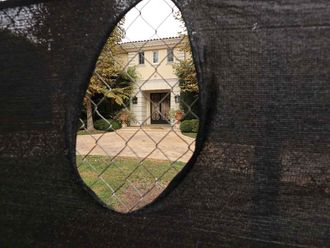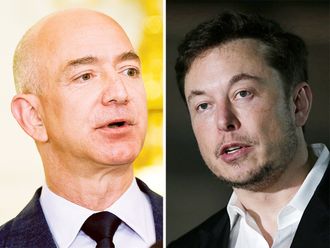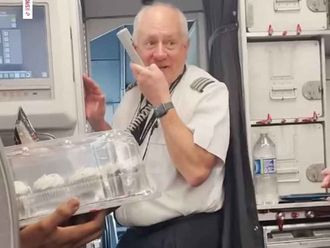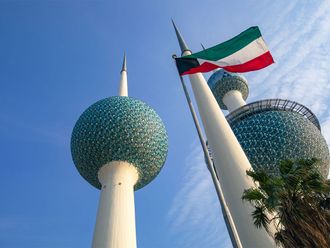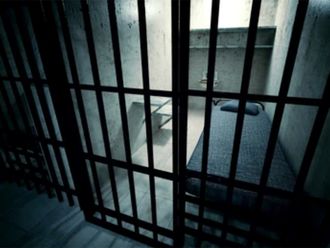Washington - John Bolton was in Mongolia.
More than 1,930km away, President Donald Trump orchestrated an image for the world’s front pages by becoming the first US president to set foot in North Korea, shaking hands with Kim Jong Un on the north side of the demilitarized zone.
The distance was telling.
Bolton, a longtime critic of diplomacy with North Korea, had scheduled his foray to Mongolia weeks before Trump’s impromptu invitation to meet Kim. But the national security adviser’s isolation at such a high-profile moment underscored the growing disconnect between the two men.
Their repeated clashes on policy and style reached an exclamation point Tuesday when Trump ousted Bolton with a tweet.
This account of how their relationship unravelled is based on interviews with current and former administration officials and Republicans close to the White House. They spoke on the condition of anonymity to discuss private deliberations.
It was a marriage that was never going to last: Trump and Bolton rarely saw eye to eye on global hotspots. The national security adviser held far more hawkish views than the “America first” president on matters like Iran, North Korea and Afghanistan.
“John Bolton is absolutely a hawk,” Trump told NBC in June. “If it was up to him, he’d take on the whole world at one time, OK? But that doesn’t matter because I want both sides.”
Trump does value disagreement and jockeying among his staff. But he came to believe that Bolton’s presence spooked foreign leaders. And he eventually grew weary of the national security adviser’s bureaucratic knife-fighting.
By the spring, Bolton found himself cut out of important White House meetings and the president’s perceived diplomatic triumphs, including the historic visit to North Korea.
As Trump met with Kim, Bolton was photographed shaking hands with Mongolia’s secretary of state - an image that decidedly did not lead cable news.
While Trump’s visit to Kim was a spectacle largely of his own making, Bolton’s more modest outreach to Mongolia was similarly his own grand design, meant to check Russian and Chinese influence in central Asia.
The two trips encapsulated their opposing world views.
In the hours before Bolton left Trump in Seoul to head for Ulaanbaatar, Bolton was in a meeting with the president in which Trump paid tribute to the officials with him - or at least tried to.
“And Secretary of State Pompeo is here,” Trump said. “Mike Bolton - John Bolton - is here.”
Reporters spotted Bolton glowering at the slight. It would not be the last.
Trump never liked Bolton’s mustache.
The president has spent a career fixed on image, prizing striking looks and frequently boasting about family members and Cabinet officials who look like they “stepped out of central casting.”
Bolton’s bushy mustache simply didn’t fit the part.
Bolton, a former ambassador to the United Nations and then a fixture on Fox News as a national security commentator, nearly entered the 2016 presidential campaign himself to push his hard-nosed foreign policy.
His neoconservative credentials never meshed with the isolationist vibe of Trump’s campaign but, during the presidential transition, there was Bolton striding through the gilded lobby of Trump Tower to meet with the president-elect.
Bolton didn’t get a job just then.
Trump later told confidants that the hawk’s trademark mustache would never be a fit in his administration. But Trump kept an admiring eye on Bolton’s frequent cable TV appearances, during which he often defended the policies of the president even when they ran counter to what he had preached for decades.
Trump’s first national security adviser, Michael Flynn, resigned barely a month into the job and was soon charged with lying to the FBI. His second, H.R. McMaster, grated on Trump’s nerves with his long-winded, detail-oriented presentations.
Bolton became the unlikely choice to be Trump’s third, thanks largely to the strength of his television appearances.
But while TV helped Bolton get the job, it also helped him lose it.
As pressure mounted on the White House this summer amid signs of an economic slowdown and growing global discord, Trump has increasingly prioritized aides who are willing to defend him on television.
Bolton was tentatively booked to appear on a pair of Sunday talk shows in late August but backed out, saying he was not comfortable defending some of the administration’s plans. That drew the president’s ire, according to a White House official who spoke on condition of anonymity because the aide was not authorized to discuss private conversations.
Trump was heard complaining about the cancellations days later.
The president debated firing Bolton for weeks, listening to the advice of outside allies like Fox News host Tucker Carlson.
With time, he grew increasingly agitated with the national security adviser, who had become a vocal internal critic of potential talks between Trump and leaders of Iran and, separately, Afghanistan’s Taliban.
There were other irritants.
Bolton broke with Trump in loudly condemning Russia’s global aggressions. And last year he masterminded a quiet campaign inside the administration and with allies abroad to persuade Trump to keep US forces in Syria to counter the remnants of Daesh and Iranian influence in the region.
The two men spoke on the phone Monday night and it grew heated, as it often did in the Oval Office. Arguing over Afghanistan, the president was angered by Bolton’s opposition to the president’s scuttled plan to host Taliban leaders at Camp David to broker a peace deal.
The two men differ over what happened next.
Trump tweeted Tuesday that he “informed John Bolton last night that his services are no longer needed at the White House.”
“I disagreed strongly with many of his suggestions,” Trump continued, adding Bolton to a long list of aides fired via tweet.
But this time, there was return fire just a few minutes later.
“I offered to resign last night and President Trump said, ‘Let’s talk about it tomorrow’,” Bolton retorted via tweet.
Bolton’s departure was announced barely 90 minutes before he was to hold a briefing at the White House with Secretary of State Pompeo and Treasury Secretary Steve Mnuchin, both of whom had repeatedly clashed with the national security adviser. The briefing went ahead anyway.
“There were definitely places where Ambassador Bolton and I had differing views about how to proceed,” Pompeo allowed.
A widely circulated photo from the briefing appeared to sum up the mood surrounding Bolton’s exit: Pompeo and Mnuchin, flanking the podium, smiling broadly.
West Wing hallways can feel surprisingly narrow, especially when crammed with reporters.
In the moments after Bolton’s firing, nearly a dozen journalists were clumped together outside press secretary Stephanie Grisham’s office.
A Bolton ally, who spoke to reporters on the condition of anonymity, approached the group and declared: “I’m going to say one thing, which is: Since Ambassador Bolton has been national security adviser 17 months - 17 months today, actually - there have been no bad deals - Iran, North Korea, Syria, Afghanistan, China - the list goes on. ... Add Russia. No bad deals.”
Just then, Grisham arrived and eyed the crowd, sarcastically noting that the spin session was taking place “right outside my office.”
Asked about the “bad deals” comment, Grisham was dismissive.
“I don’t know what that means,” she said, then smiled and added, “Sounds like somebody just trying to protect him.”



